“History with its flickering lamp, stumbles along the trail of the past, trying to reconstruct its scenes, to revive its echoes, and kindle with pale gleams the passion of former days.”
~Winston Churchill
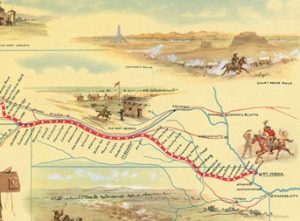
1860 – On this date, the first Pony Express mail, traveling by horse and rider relay teams, simultaneously left St. Joseph, Missouri, and Sacramento, California. Ten days later, on April 13, the westbound rider and mail packet completed the approximately 1,800-mile journey and arrived in Sacramento, beating the eastbound packet’s arrival in St. Joseph by two days and setting a new standard for speedy mail delivery.
Although ultimately short-lived and unprofitable, the Pony Express captivated America’s imagination and helped win federal aid for a more economical overland postal system. It also contributed to the economy of the towns on its route and served the mail-service needs of the American West in the days before the telegraph or an efficient transcontinental railroad.

1865 – The Rebel capital of Richmond, Virginia, fell to the Union, the most significant sign that the Confederacy was nearing its final days.
For ten months, General Ulysses S. Grant had tried unsuccessfully to infiltrate the city. After Lee made a desperate attack against Fort Stedman along the Union line on March 25, Grant prepared for a major offensive. He struck at Five Forks on April 1, crushing the end of Lee’s line southwest of Petersburg.
On April 2, the Yankees struck all along the Petersburg line, and the Confederates collapsed. During the evening, Confederate forces abandoned the city, allowing the Union troops to march in unopposed the following morning.
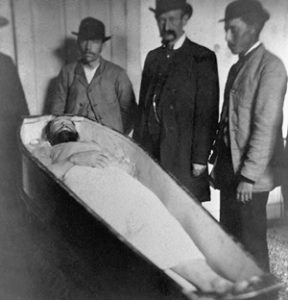
1882 – Jesse James, one of America’s most famous criminals, was shot to death by fellow gang member Bob Ford, who betrayed James for reward money. For 16 years, Jesse and his brother, Frank, had committed robberies and murders throughout the Midwest. Detective magazines and pulp novels glamorized the James gang, turning them into mythical Robin Hoods who were driven to crime by unethical landowners and bankers. In reality, Jesse James was a ruthless killer who stole only for himself.
After spending a few quiet years farming – following the botched Northfield, MN robbery – Jesse organized a new gang. Charlie and Robert Ford were on the fringe of the new gang, but while Jesse’s mother made breakfast, the new gang met to hear Jesse’s plan for the next robbery. When Jesse turned his back to adjust a picture on the wall, Bob Ford shot him several times in the back.
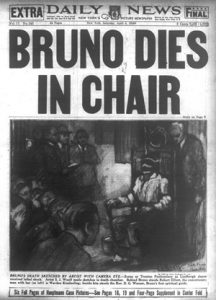
1936 – Richard Bruno Hauptmann, convicted in the 1932 kidnapping and murder of the 20-month-old son of Charles A. Lindbergh, was executed by electrocution.
In the years following the kidnapping, a number of people began to question Hauptmann’s guilt and the quality of the criminal investigation; however, much of this criticism was likely motivated by opposition to Lindbergh following the public revelations of his Nazi sympathies.
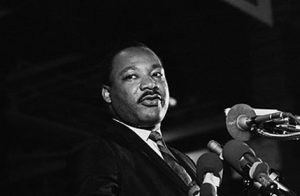
1968 – Martin Luther King, Jr. delivered his “I’ve Been to the Mountaintop” speech at the Mason Temple (Church of God in Christ Headquarters) in Memphis, Tennessee. He was assassinated the next day.
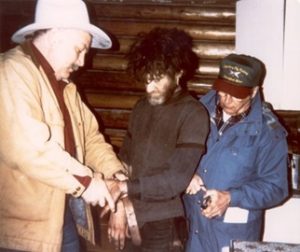
1996 – At a small wilderness cabin near Lincoln, Montana, Theodore John Kaczynski was arrested by FBI agents and accused of being the Unabomber, the elusive terrorist blamed for 16 mail bombs that killed three people and injured 23 during an 18-year period.
On January 22, 1998, Kaczynski pleaded guilty on all counts and was spared the death penalty. He showed no remorse for his crimes and five months later, he was sentenced to four life sentences plus 30 years.
Compiled by Ray Lemire ©2018 RayLemire.com. All Rights Reserved.